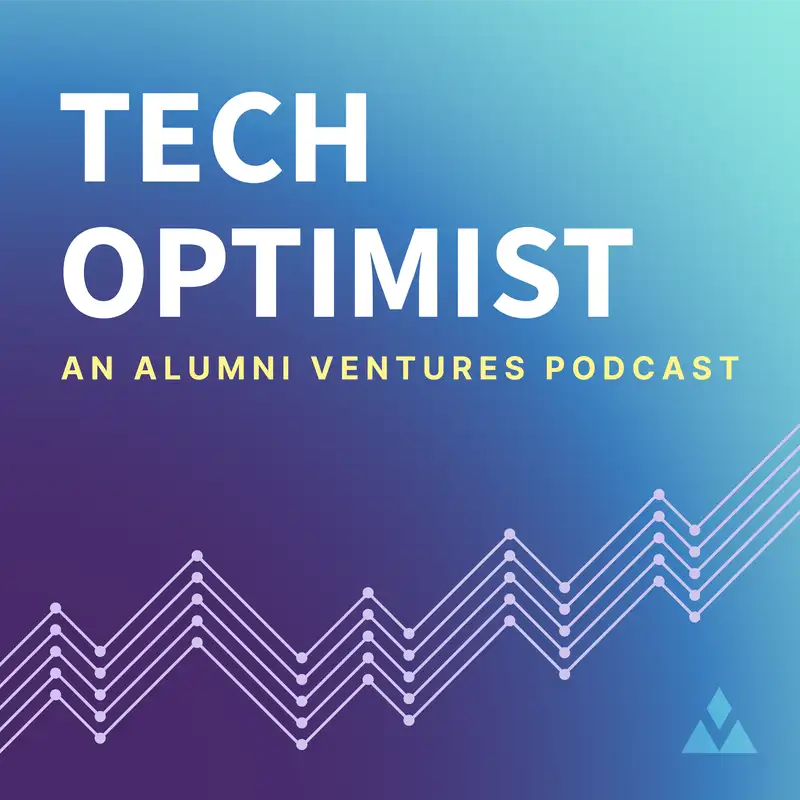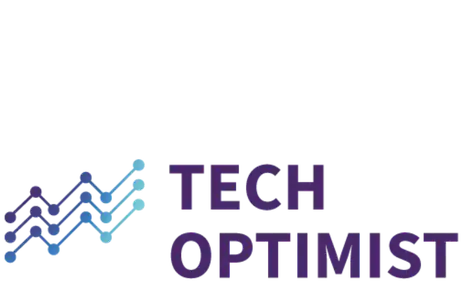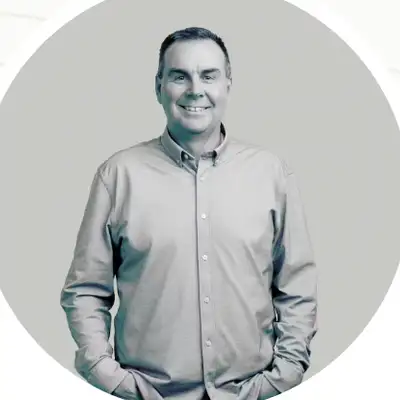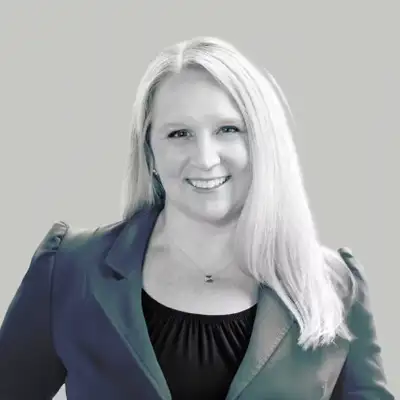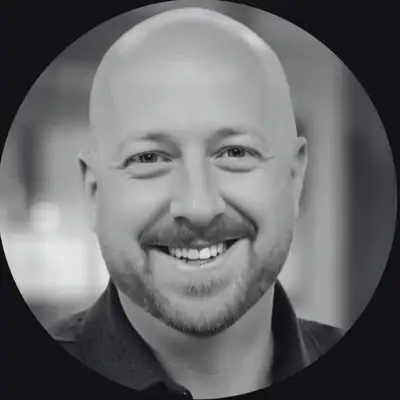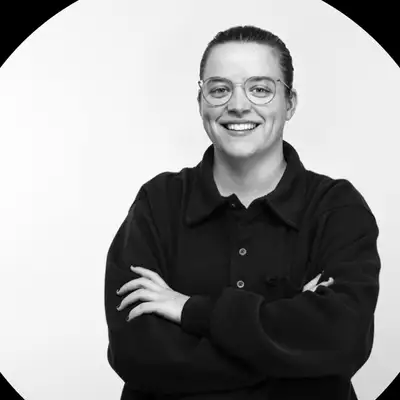#22 - Is Your Solar ROI as Bright as Promised?
Sam:
What if you could shop for solar panels like you do for cars? My name is Sam, your guide for this podcast. This is the Tech Optimist.
Deep Chakraborty:
So we're seeing a huge shift from the grid to solar power at home to charge your EVs. The other side of Enact is new and is growing fast, which is the consumer, the homeowner, and they can measure the outcome.
Greg Baker:
You're doing some wonderful things to help proliferation of a solar project.
Deep Chakraborty:
The mission has been how do you bring at least an automotive buying experience to the solar industry.
Sam:
In a world captivated by criticism, it's easy to overlook the groundbreaking technologies shaping our future. Let's shine a light on innovators who are propelling us forward. As the most active venture capital firm in the US, we have an exceptional view of tech's real world impact. Join us as we explore, celebrate, and contribute to the stories of those creating tomorrow. Welcome to the Tech Optimist.
As a reminder, the Tech Optimist podcast is for the informational purposes only. It is not personalized advice and it's not an offer to buy or sell securities. For additional important details, please see the text description accompanying this episode.
Greg Baker:
Hello everyone and welcome to another edition of the Tech Optimist podcast. My name is Greg Baker. I'm a managing partner here at Alumni Ventures. I'm joined today by Deep Chakraborty, CEO of Enact Systems. Deep welcome.
Deep Chakraborty:
Thank you, Greg. Glad I'm here and thank you for having me.
Greg Baker:
We invested in Enact a few years ago. You're doing some wonderful things to help with the proliferation of solar projects. So why don't you tell us a little bit more about what you're doing?
Deep Chakraborty:
Yes. Thanks, Greg. Enact is a platform for solar, as you said, and battery storage projects. We focus on buildings, homes and businesses, and it really automates the process of the customer journey. So buying these things and getting these things that are complex. So we're helping the customer journey automation, which starts the design of such projects using our proprietary software and then the entire process of delivery and most importantly, measuring the outcomes of such investments, which are longterm returns over many years. It's a SaaS play. We have been at it for over seven years and we have a very interesting business model. Would love to share more about that and tell you about our journey.
Greg Baker:
Yeah. Why you tell me some of the great advantages that customers have using your system.
Deep Chakraborty:
Yes. Enact is a two-sided platform. On the one side it helps providers of solar projects, installers and designers and sales professionals on their journey, which is remotely designing these projects in minutes instead of hours. And so we have been very successful at that. We have eliminated pretty much the need to visit a site for a solar project. You can use Enact to design using a satellite imagery and we have all the data in one place. Electric rates and different hardware options. So within minutes you can prepare a very complete proposal which leads to contracts and the sales process gets automated and that's the core of Enact. It's active in many countries, not just in the US. The other side of Enact is new and is growing fast, which is the consumer, the homeowner or the business owner. They too have an app and they can measure the outcomes of all their project performance, financial savings. We're the only platform that gives such a financial-focused outcome tracking to the buyer unlike some of the larger players that are very narrow in terms of the information. So we have nothing to hide. We have all our information, projections, proposals compared against actuals. So it gives a very transparent buying journey to anyone that is using Enact to procure their solar storage projects and it's also both residential and commercial.
Greg Baker:
And where are you seeing the biggest growth?
Deep Chakraborty:
Great question. We are seeing of course within the US a shift from California where we started to a lot of new markets. We are very west coast central. In our company most of our employees in the US are on the western side. But we are seeing a big shift on growth of solar in many states. Texas now is a top five state. The northeast is very strong. And all major urban centers in the US where consumers are buying their electric cars now for the first time. Last year was the highest number of electric cars sold. That's driving solar because once the customer gets an electric car, the electric bills go up and the dealer never tells you that. So you get your shock and then you get your solar next. So we're seeing a huge shift from the grid to solar power at home to charge your EVs and that's in pretty much all 10 top metro cities in the US.
But in terms of states, we are seeing a shift to the eastern states picking up. California has had a lot of policy changes last couple of years, especially last year and so the market's adjusted quite a bit. And then internationally we are active in Germany, Italy, Middle East, India, many other countries. All the markets are growing and we are seeing of course, as you grow eastwards, the price of solar is lower for the same hardware cost. It's delivered at a much lower price and therefore the paybacks are incredible. You're seeing under three-year payback in pretty much all over India and therefore it's becoming easier to buy these things. It's not a very expensive purchase and can be paid off quickly.
Matt Caspari:
Hey, everyone. Just taking a quick break so I can tell you about the Deep Tech Fund from Alumni Ventures. AV is one of the only VC firms focused on making venture capital accessible to individual investors like you. In fact, AV is one of the most active and best-performing VCs in the US. And we co-invest alongside renowned lead investors. With our Deep Tech Fund, you'll have the opportunity to invest in innovative solutions to major technical and scientific challenges, which can have a hugely positive effect on society. Companies that have the potential to redefine industries and create a more sustainable future and deliver significant financial returns. So if you're interested, visit us at av.vc/funds/deeptech. Now back to the show.
Greg Baker:
What's holding us back from having the three-year payback?
Deep Chakraborty:
We're having ... Obviously in California where I live, it's a five or six-year payback. The cost of hardware is about 40% of a total cost of an installed system. So there's a lot of soft costs. Permitting is a big piece of it. So the city and the utility both come to your home, inspections after every project. So the code ensures a safe system, but there's a lot of bureaucracy in how systems are sold and delivered, which is not the case in Germany. The local licensed contractor can do it with a one-piece paper signed. There's no visit to your home. So the German systems are half the price delivered than the US systems. There's definitely a lot of opportunity. Same in Australia. It's even lower than Germany. So I think the US method of course is very safe. We protect the homes from any issues in electrical and fire code safety, but the process is long and it's extremely bureaucratic and we have only five million homes now that have solar. To get to 20 more this cannot continue. It has to be digitized.
Sam:
I am with Deep here. I totally understand what he's talking about, how this needs to be digitized so that they can expand and get more houses and more homes and more customers with solar panels. So I so understand what he's trying to say here. But I did want to add something in reference to the hardware cost for panels that Deep was talking about here. So the hardware cost through Enact is about 40% of the whole system. The rest goes to permitting and code compliance stuff and just other minuscule stuff that has to happen to get those installed. Since solar panels can cost between $2.40 and $3.60 per watt, the more energy your solar panel system needs to produce, the more you'll pay. NerdWallet also says that per state with a six kilowatt system can cost anywhere between 18,000 to $36,000. In New Hampshire, on average they cost about 21,000 and in Massachusetts they average anywhere from 20,000 to 20,800. But then again, let's keep in mind that these prices are before any tax rebates that you get. Let's get back into it and see what else is down the road in this interview.
Greg Baker:
Okay. What brought you create Enact?
Deep Chakraborty:
Great question. My background, I'm an engineer. I worked a lot in the automotive industry going back 10 years ago. I was in Michigan 15 years ago. And like engineers, I like solving problems. When I switched to solar in 2009 and I worked in the solar industry for many years, I found that unlike automotive where you can go and pick up your car at a dealership and you pay your $30,000 or so and lease it, in solar, there is nowhere to go. Very difficult buying journey. So obviously coming from automotive, the mission has been how do you bring at least an automotive buying experience to the solar industry, which is very big now. You're talking millions of homes and about a million homes a year. So that has been the motivation. How do you bring a customer experience and journey that deserves the solar customer similar to a car customer? And that's been the mission at Enact. Of course, the one thing I will mention, it's the same industry now. When I left automotive, I thought I switched to solar, but now the car companies are selling solar. So I think there's obviously a big shift there as well.
Greg Baker:
Enact is indifferent to the installer and the solar panel company?
Deep Chakraborty:
We are completely indifferent to the solar panel company or equipment providers. Every certified equipment option is on our platform. We are also completely indifferent to which installer uses Enact. We would love all of them to, but we know that there are other ways of building their businesses. Many don't have any software tools at all and some use different types of homegrown software or combinations of design and some horizontal CRM type platforms. So there's many ways to get the same outcome but we are an all-in-one approach and that works for many installers and so we are indifferent to who wants to join our platform. And of course we also are bringing them projects now in certain parts of the US market. We're not just bringing them software. Our preferred installer partners also win consumer projects in California, which is a very interesting and new addition to our business.
Greg Baker:
Great. Now, if I happen to have a solar system and the installer didn't have a great operating system for me on the front, are you retrofitable?
Deep Chakraborty:
We are retrofitable. We have integrated with all the major manufacturers of solar inverters. And the top brands include SolarEdge, Enphase, Huawei, SMA and so on. So regardless of who installed your system, highly likely that we already are integrated to inverter brand and that allows us to connect with your system even after you've installed it and figure out how it's doing and how's your return on investment if you share with us some of your contracts. So we can onboard you to Enact even after you've purchased solar. We're doing that a lot also now in California. People come to us and they say, "Hey, I got my solar but I need some more. I am getting an EV. Should I add four more panels?" So we are helping consumers in that journey directly now in evaluating the options and upgrades.
Greg Baker:
All right. So you've been doing this for seven years. Where are you in the journey and what do you see the next five or so years doing?
Deep Chakraborty:
Yes. We started early in 2015 and the market wasn't ready for what we built early on. I think we were a few years early. But once we got traction with our platform, we bootstrapped the company and like many first-time founders, we did everything we could to build the product revenue without raising a lot of money. And we were successful in doing it and even going international with it during those COVID years when if you remember, you couldn't visit a home. And people wanted to get more solar because the bills went up. So it was really a perfect storm for us. We were able to penetrate many markets even internationally without ever visiting these countries. And then we raised our large series A financing, which was about two years ago. And that's really helped us now in expanding the company. Since we raised the money, we have more than doubled our revenue and we have not quite doubled the spend. We have of course increased the spend a bit. And we are trying to have long runways to growth so that it's accreting for us. So we are not one of those that has raised a lot of money. I'm sure you've seen our books. We are one of those that has raised less than our competitors and trying to grow with it and we think that's the right approach because solar is a very difficult space unlike the traditional tech sector.
Greg Baker:
It was a little surprising that there were definitely some headwinds last year for the solar industry.
Deep Chakraborty:
Yes. Absolutely. We have battled through several headwinds last year. One is interest rates. As you know, consumers are dependent on financing for solar. Interest rates going up was not a good idea for any of our solar-based business platforms. And the other big shift we have seen is that the electric utilities have pushed back on the growth of solar at its current pace. It's not just doing it to pull it down, it's also doing it to balance the grid. So the rate solar is growing ... California for example, they needed a way to incentivize the use of batteries, which is finally happening and that stabilizes the evening grid mix of power. It's happened already the same thing in Hawaii and Germany. So we are seeing all of those shifts at the same time and so we are battling through those headwinds. A lot of big companies have not been able to navigate this change. And so we have been very focused on making sure installers succeed and they can keep growing the businesses and stay in business so that we can be in business.
Greg Baker:
Great. Where do you see series B and beyond for Enact?
Deep Chakraborty:
Yeah. We are looking at a series B early next year and we are also looking at of course along the way pretty steep revenue climb. We are seeing lots of interesting markets which we have invested for last few years grow quickly. We have not expected the growth we have seen in Europe, especially markets like Italy and Germany where there's lesser competition, fewer players like us, and also very high need for good software platforms because traditionally these markets have been very protected. There was not enough ... Number of installers have doubled. For example, parts of southern Germany per city, we have two or three times more installers. And the reason is the market has grown. Since the Ukraine war there's a lot of pressure on energy, so we are seeing a lot of interesting dynamics of the same product. In many markets the growth rates are all good, but some better than others.
So that makes our series B story very compelling. But at the same time we are also trying to make sure that as we grow the platform is able to quadruple its network. And so we are a two-sided play and we want more homes to buy solar through Enact and more installers to deliver solar through Enact. And it's not an easy two-sided play when you do a marketplace like ours. And that's where the series B is positioned to help us grow into. We know that the network effect is very hard to build, but once it's built it's very hard to replicate and that's what we are betting on.
Greg Baker:
We're going to take a quick break right now and we'll be back with more of our conversation with Deep about Enact.
Speaker 5:
Ever wonder how the ultra wealthy invest their money? They often back startups before they go public through venture capital. Now individual investors like you can too with Alumni Ventures. Visit av.vc to get started.
Greg Baker:
Well welcome back. So Deep, no one does this alone. How did you build your team and what are your strengths?
Deep Chakraborty:
Yes. We were very fortunate to have myself and my co-founder in India Manasij Kar who are both from the same college. We were college friends. And very interestingly, we both had our similar journeys in solar. When he went through a solar company in India, which was at the same time I was working in the US we kept in touch. So the insights we gathered were at the same time and that led to the birth of Enact, which has been very compelling for the markets. And that's also the reason why we've been doing so well internationally because we have a 24-hour clock. We have a huge team in India and we are able to service customers on both sides of the ocean. Very different from our competitors, for example, that are mainly US centric. And that I feel has been a big reason why we've been able to grow our customer base without a lot of capital because we had the round the clock motion.
And the rest of the team, of course is on both sides of the ocean. We have been very fortunate in getting people from the industry, from the solar industry coming from very good backgrounds in maintenance and O&M design, sales. So we've pulled in some of the best talent. And we've now done that in Europe as well. Very experienced folks in our team and of course in India. So we are able to cover those three main continents with the various experience team. Also, I would mention that our tech team is of course, although mainly in India, we are very fortunate to have some of the best team members who are remote cities in India, sometimes not at one place. And that's how during COVID we were able to work and deliver good software without meeting each other every month.
Sam:
So here Deep, really wanted to make sure to give his team and his co-founder a bit of a spotlight. And I think that's a really fascinating testament to a good leader if they can really help the other people within their team shine. So I wanted to share some of Enact's vision and their core values as a company, which they have made note on their website that all members of their team have approved as of 2019. So their vision ... This is directly from their website. Their vision. We strive to transform the end customer's purchase and ownership experience of renewable energy systems like solar and energy storage. We leverage data and automation to build trust as well as improve the services delivered by partners using our platform.
And then their mission statement, provide an intelligent digital platform that enables development and management of solar and energy storage projects. Easy, transparent, and affordable for all. And then their core values, which I wanted to share really quickly. I won't get too into depth about each value itself. It's on their website. You can go for yourself and research and read them. I think they're fascinating. But their core values are sustainability, customer trust. They want to be data-driven. They want to provide mutual respect between parties and perseverance. So after sharing this, keep this in mind for the rest of this interview. Let's have Greg help us round out the rest of this interview and the rest of this episode. Enjoy.
Greg Baker:
You were virtual before it was forced on us.
Deep Chakraborty:
Exactly. We were virtual long before COVID forced us. That helped us scale when COVID hit. We didn't of course knew it would be that way. And so we have stayed virtual since. We're still a hybrid company. We don't think we'll ever go back to the office full time, but we try to meet every so often at least once a week in the Bay area and so on. And it's been very helpful. For us it's one of the reasons we have grown is because of our hybrid policy. I think you can do great work at home and balance the commute.
Greg Baker:
Yeah. Well we at Alumni Ventures, one of the things that we have as a very large community and always like to ask how we can help. And I think I might know the answer, but I'll let you go with that.
Deep Chakraborty:
Sure. As I told you, we have launched since the series A, a very interesting new offering where we can help any homeowner in America. Mainly California right now, but even in other cities. To get their solar answers from Enact directly. You can just schedule time with us on our website. We have no barriers. We are open to all manufacturers. As I said, we open to all installers. So all we need is your electric bill and your address and we'll design the best solar system for you which meets your needs, not more, not less. And then even help you on your journey to find the local installer that will be the right partner for you. It's very successful. We've done over 500 such projects now, different stages of execution in California. We also have our first projects in many new cities like Pittsburgh, Philadelphia, New York, Chicago. We are seeing the same need. People buying EVs, people having high bills. So I think your network Greg, can be very powerful in reaching college alumni and maybe helping them on their journeys. And we want to be a part of that solar transition.
Greg Baker:
And there are a few EVs in our parking lots of our offices too.
Deep Chakraborty:
There you go.
Greg Baker:
I'm sure those homeowners could use a benefit. Hopefully they had a rewiring done for the charger they put in their garage because I come from that world. I'm very nervous about anyone charging their EV, plugging it into a standard outlet. It works for a while but it doesn't work for years.
Deep Chakraborty:
Absolutely. I just got a new EV last month and it's not been easy finding the fast chargers on the highways. I read somewhere there's 70,000 fast chargers we need in the US by 2027. It's only a thousand of them or so. It's a huge, huge lift ahead. And solar can reduce the cost of charging significantly. So solar and charging go together. And so we are seeing that of course on the highways. We see the solar carports now coming up. But we are just at the beginning, I think of that.
Greg Baker:
Well, it's been a pleasure working with you and having this conversation. Wish you the best of luck and look forward to continuing our partnership. And thank you for being a part of the Tech Optimist podcast.
Deep Chakraborty:
Thank you Greg. And thank you for your support all these years and look forward to staying in touch and working with your alumni.
Greg Baker:
All right. And for everyone who watched, thank you very much for watching this episode and look forward to our next episode coming soon.
Sam:
Thanks again for tuning into the Tech Optimist. If you enjoyed this episode, we'd really appreciate it if you'd give us a rating on whichever podcast app you're using and remember to subscribe to keep up with each episode. The Tech Optimist welcomes any questions, comments, or segment suggestions. So please email us at info at techoptimist.vc with any of those and be sure to visit our website at av.vc. As always, keep building.
